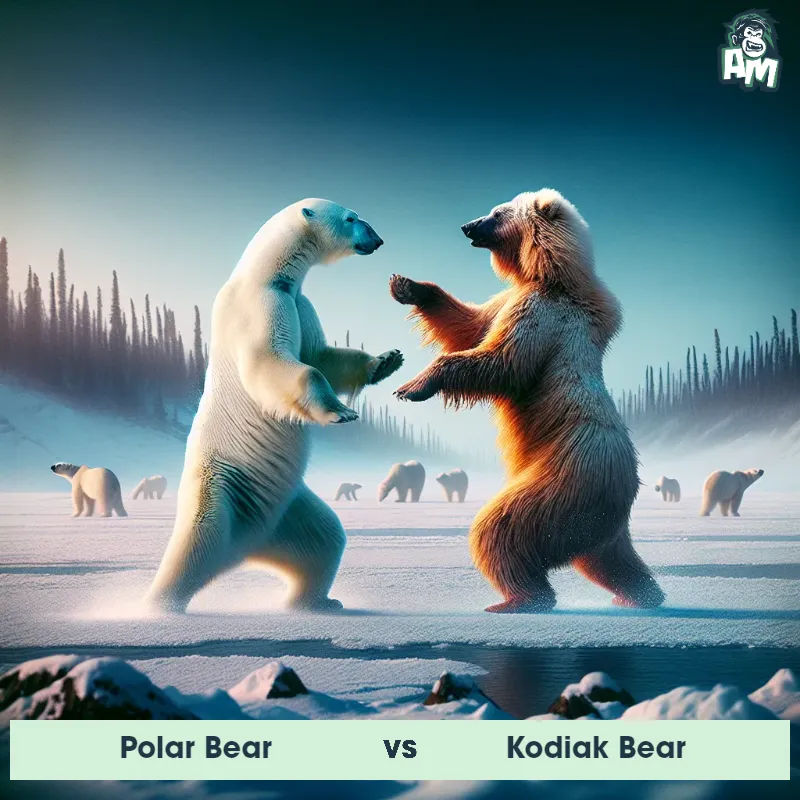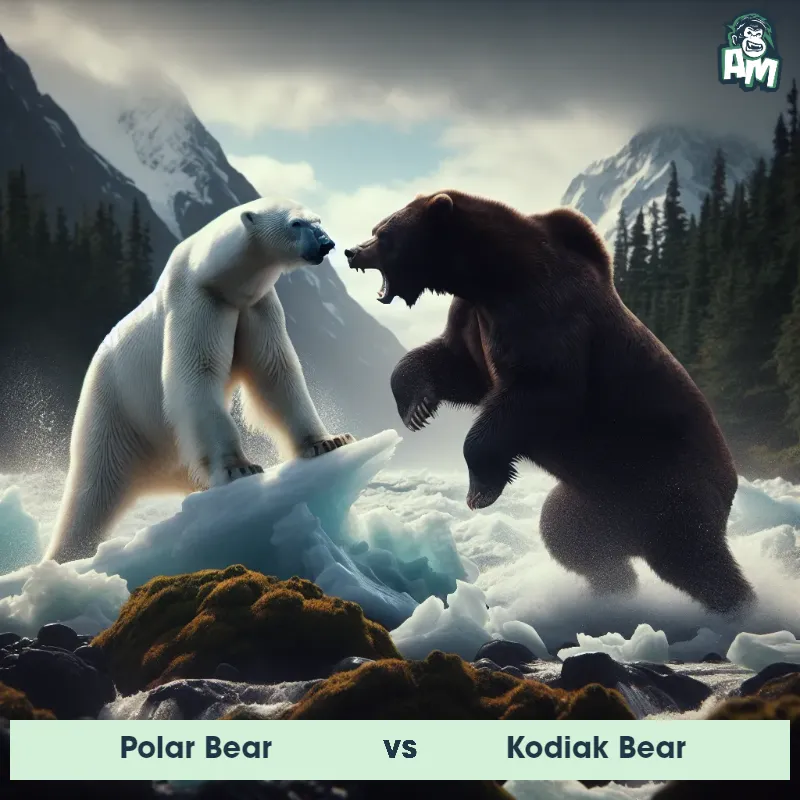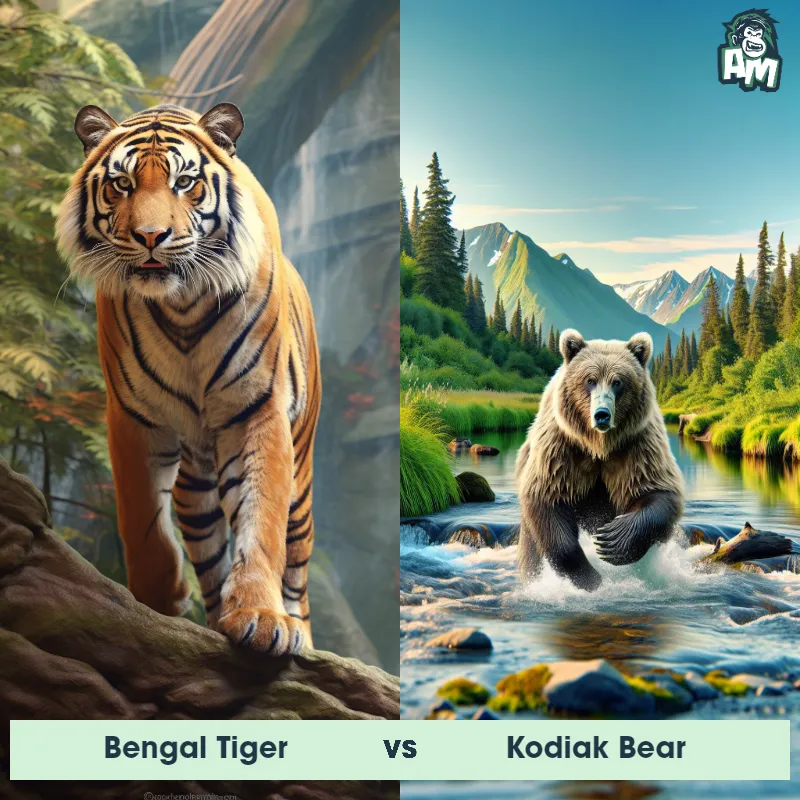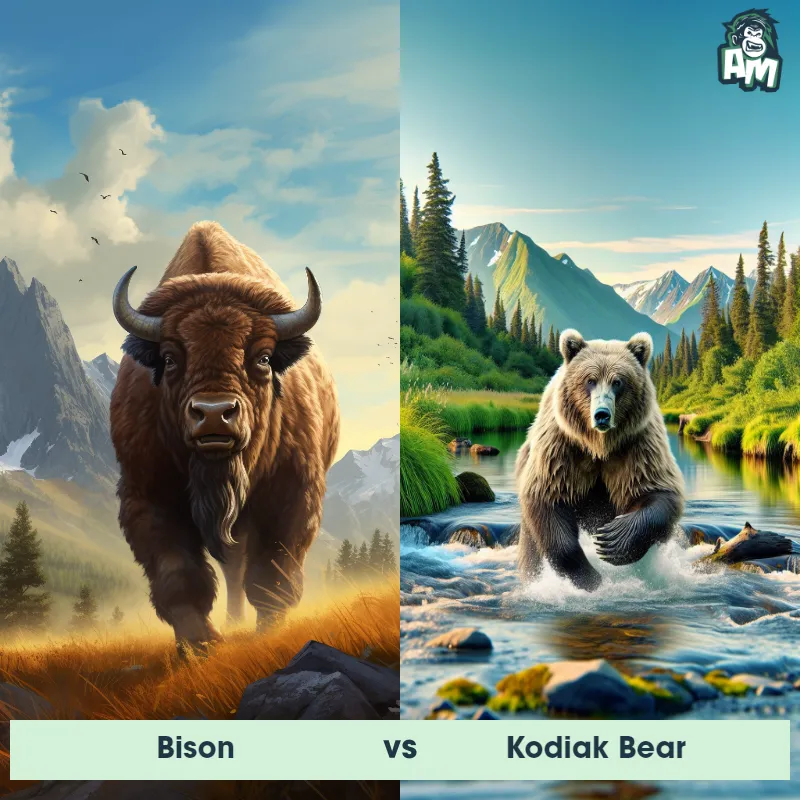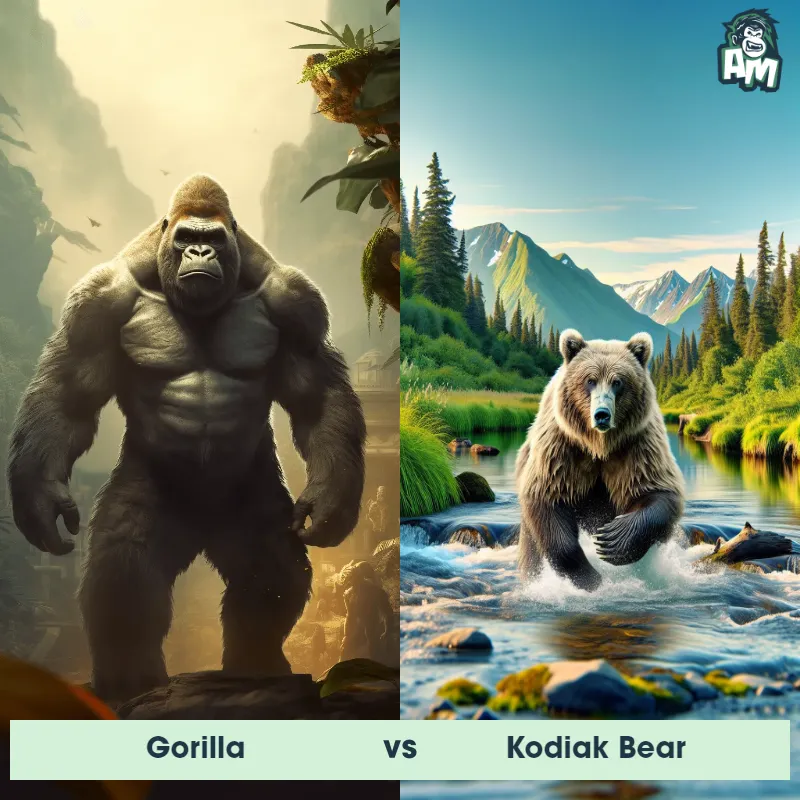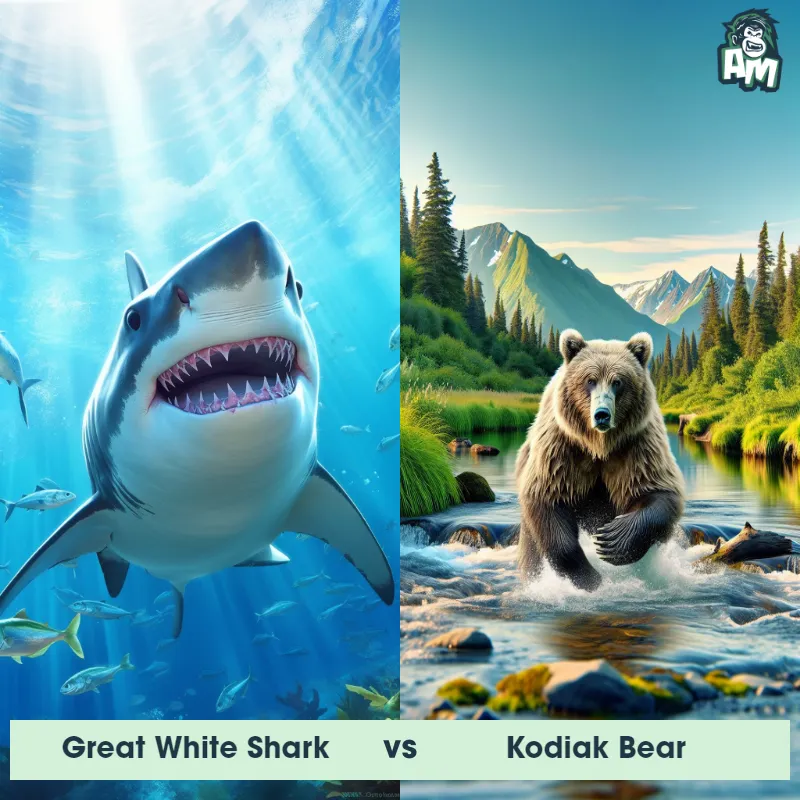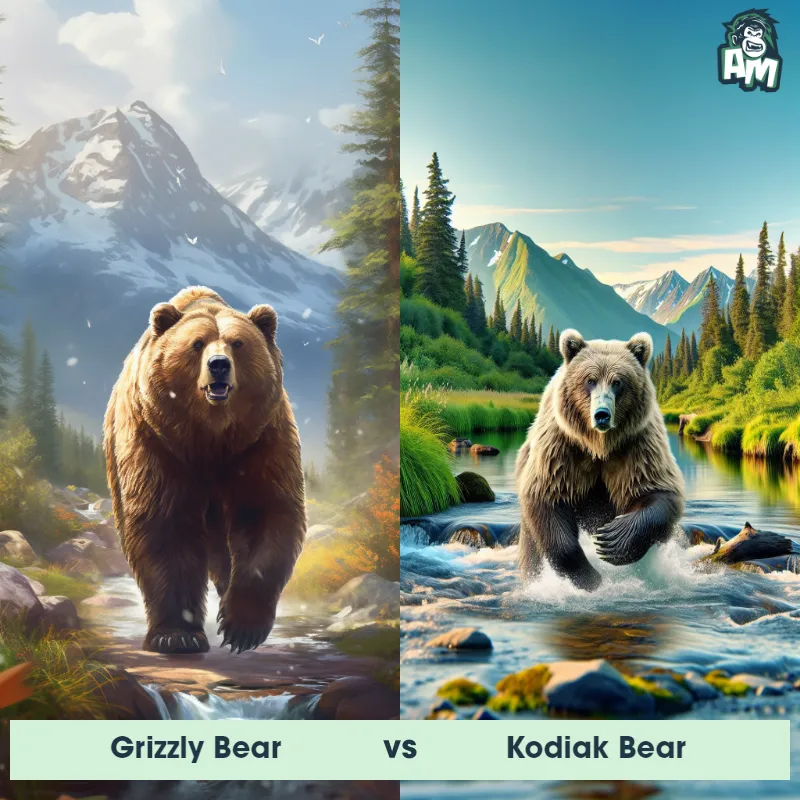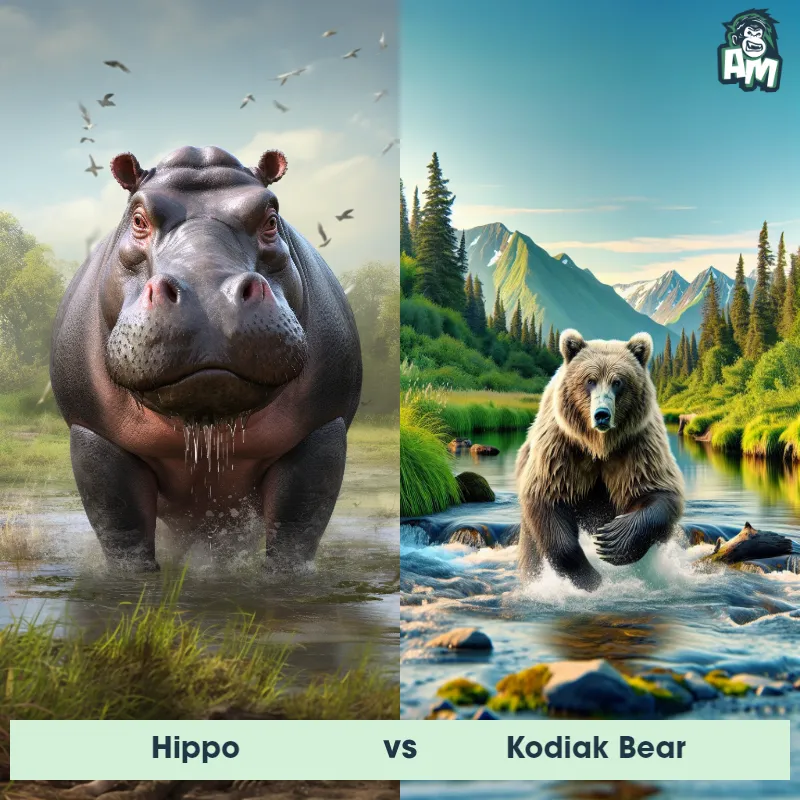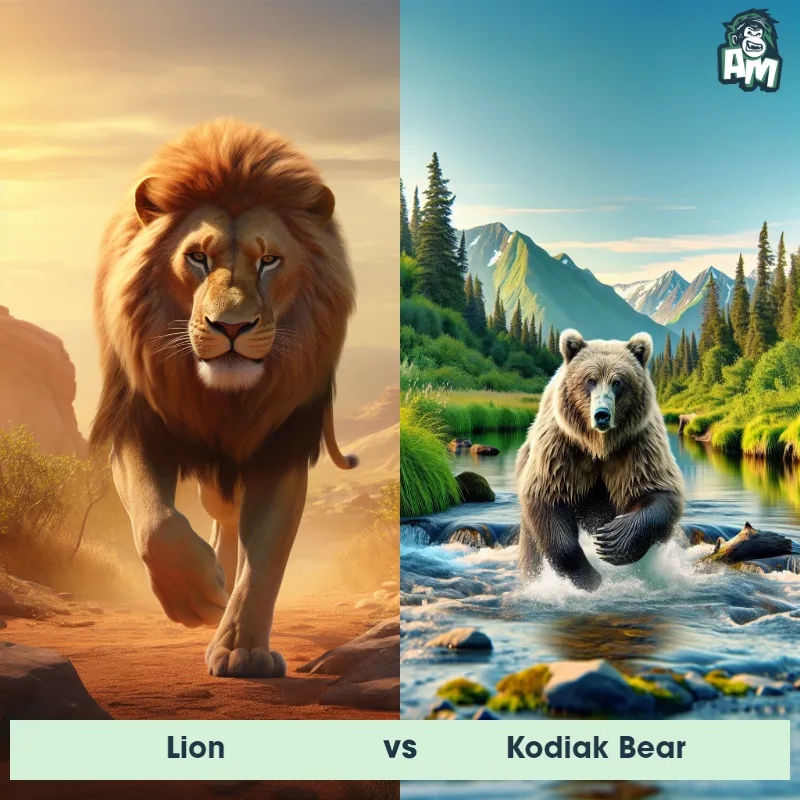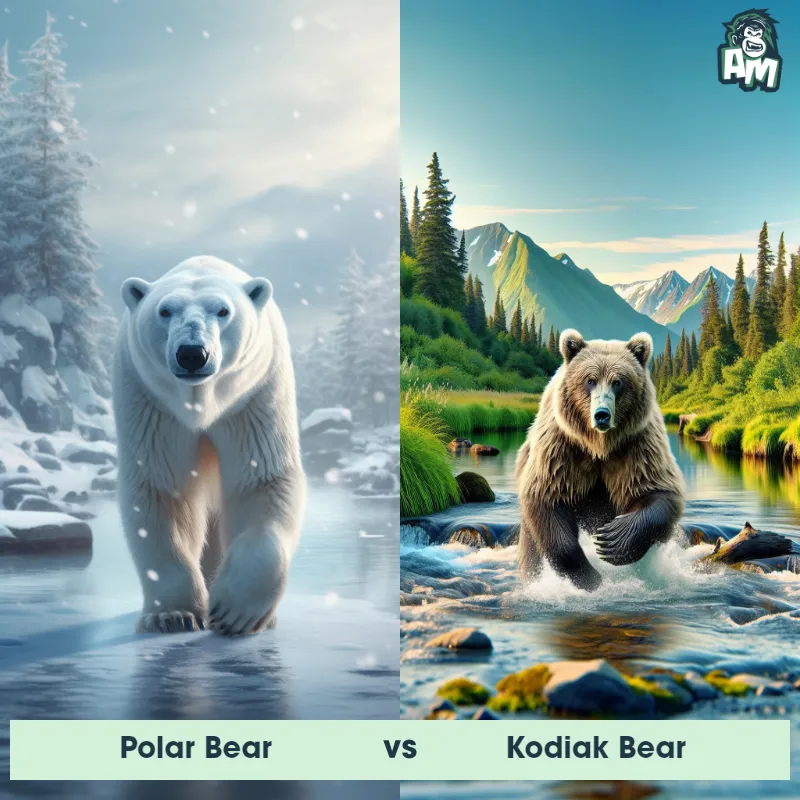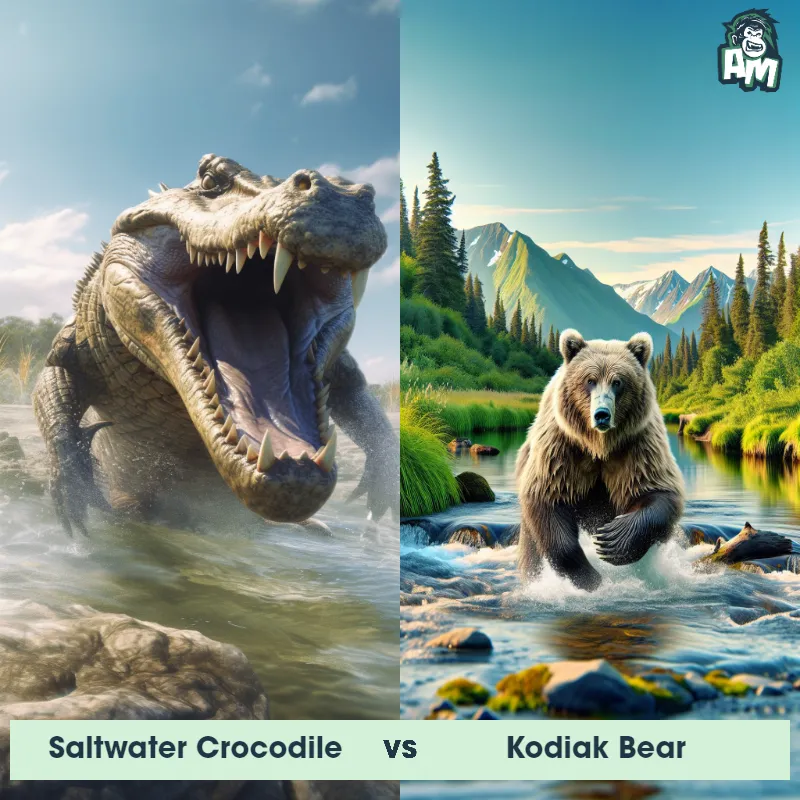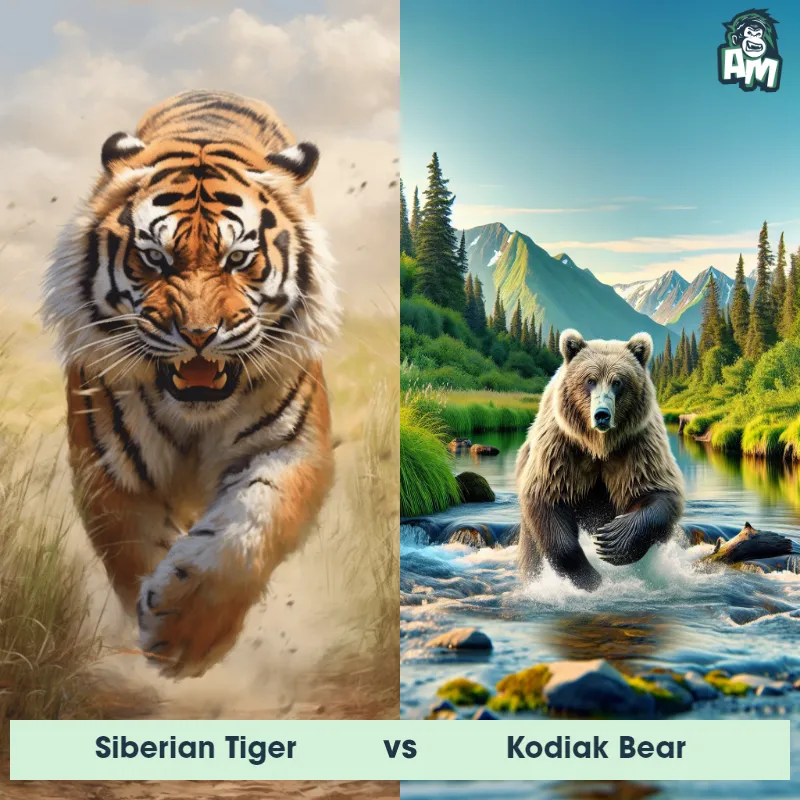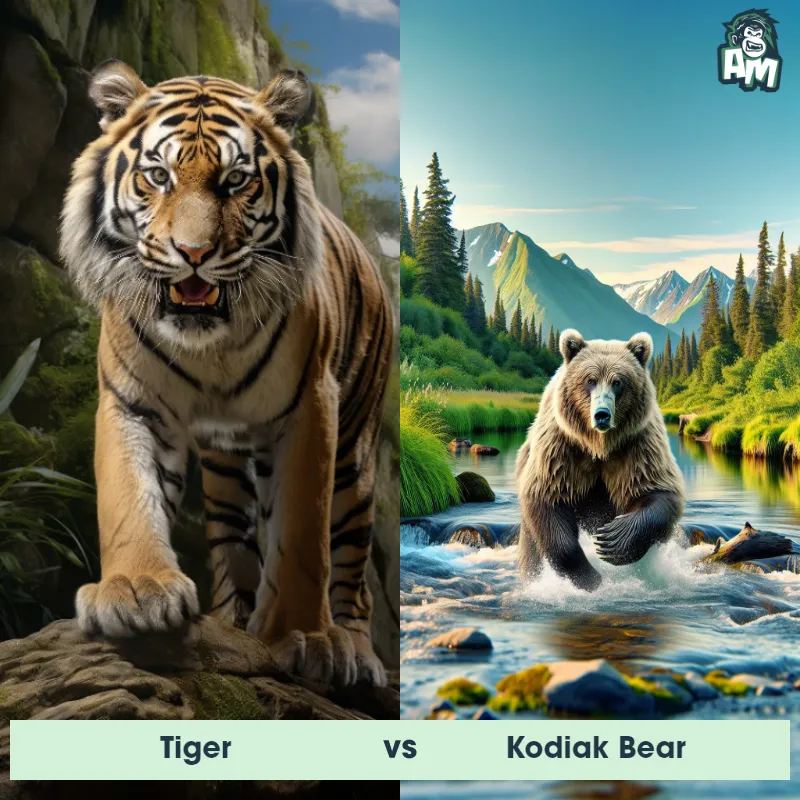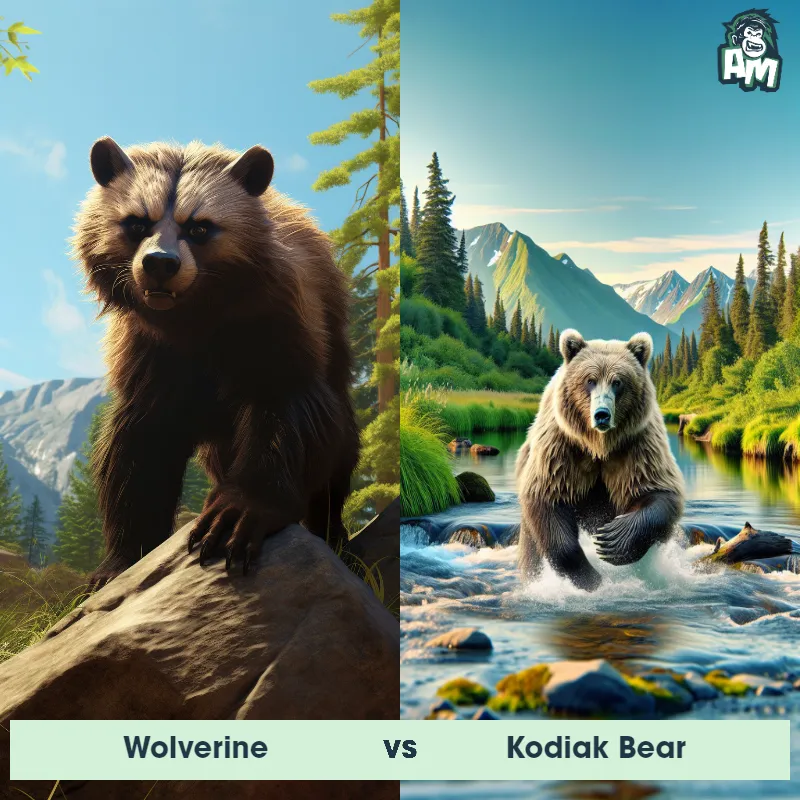The Kodiak Bear
The Kodiak Bear, also known as the Alaskan brown bear, is a subspecies of brown bear native to the Kodiak Archipelago in Alaska. It is one of the largest bear species in the world, with males weighing up to 1500 pounds and standing 10 feet tall.
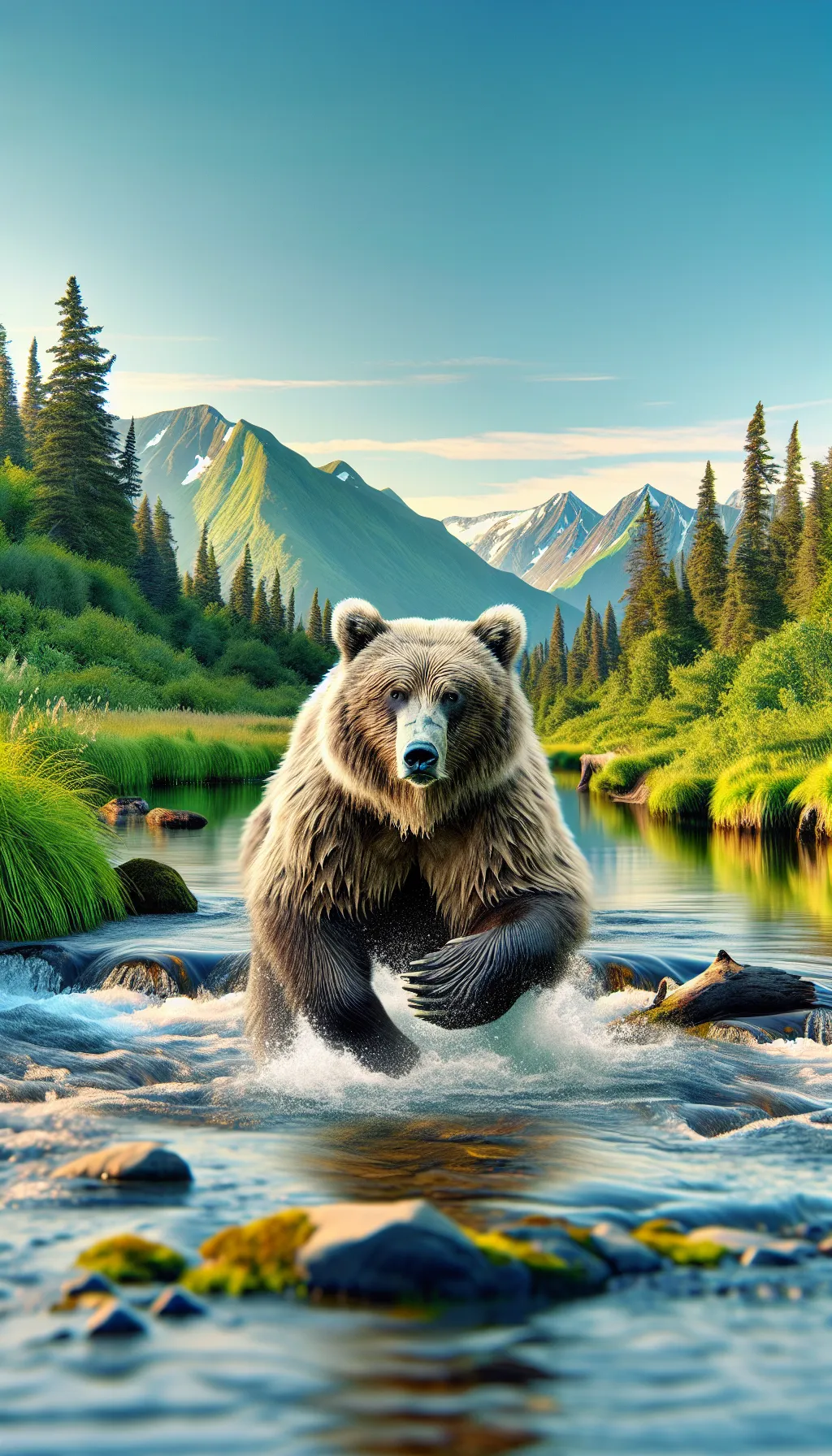
| Kodiak Bear | |
|---|---|
| Size | Up to 10 feet tall (3 meters) |
| Weight | Up to 1,500 pounds (680 kilograms) |
| Speed | 34-35mph (55-56km/h) |
| Key Strength | Strong bite and powerful swipes |
| Biggest Weakness | Slower movements compared to smaller predators |
| Scientific Name | Ursus arctos middendorffi |
| Family | Ursidae |
| Habitat | Forests, tundra, and rocky areas |
| Geography | Kodiak Archipelago, southwestern Alaska |
| Diet | Omnivorous - eats berries, nuts, vegetation, fish, and meat |
| Lifespan | 20 years - 25 years |

The Kodiak Bear
The Kodiak Bear, also known as the Alaskan brown bear, is a subspecies of brown bear native to the Kodiak Archipelago in Alaska. It is one of the largest bear species in the world, with males weighing up to 1500 pounds and standing 10 feet tall.
Fun Fact: Kodiak Bears have been observed catching and eating salmon during their annual migration, as they patiently wait for the fish to jump out of the water, making for an impressive feeding spectacle.
| Kodiak Bear | |
|---|---|
| Size | Up to 10 feet tall (3 meters) |
| Weight | Up to 1,500 pounds (680 kilograms) |
| Speed | 34-35mph (55-56km/h) |
| Key Strength | Strong bite and powerful swipes |
| Biggest Weakness | Slower movements compared to smaller predators |
| Scientific Name | Ursus arctos middendorffi |
| Family | Ursidae |
| Habitat | Forests, tundra, and rocky areas |
| Geography | Kodiak Archipelago, southwestern Alaska |
| Diet | Omnivorous - eats berries, nuts, vegetation, fish, and meat |
| Lifespan | 20 years - 25 years |
Match Highlights
Kodiak Bear Matchups
We use AI to simulate matchups between the Kodiak Bear and other animals. Our simulation considers size, strength, and natural predatory behaviors to determine the most likely outcome.

Can't find the Matchup you want?
Create Your Own MatchupKodiak Bear: Diet, Predators, Aggression, and Defensive Behaviors
What do Kodiak Bears eat?
Kodiak Bears are omnivores, feeding on a diet that consists mainly of fish, berries, grasses, and small mammals. During the summer and fall, they focus on consuming large quantities of salmon to fatten up before hibernation in the winter.
Do Kodiak Bears have any predators?
As the largest subspecies of brown bear, adult Kodiak Bears do not have natural predators in the wild. However, younger bears may fall victim to predation by other bears or wolves.
Are Kodiak Bears aggressive?
Kodiak Bears are generally considered to be less aggressive towards humans compared to other bear species. However, they can become aggressive if they feel threatened or if their cubs are in danger.
Do Kodiak Bears fight?
Kodiak Bears are solitary animals and tend to avoid confrontation. However, they may fight with other bears, especially during mating season or when defending their territory.
How do Kodiak Bears defend themselves?
When faced with a threat, Kodiak Bears can exhibit various defensive behaviors, such as making themselves appear larger by standing on their hind legs, vocalizing loudly, or charging at the perceived threat. They may also use their powerful jaws and claws to defend themselves if necessary.
What is the biggest weakness of Kodiak Bears in a fight?
Despite their impressive size and strength, Kodiak Bears have a relatively slower speed compared to other predators such as wolves. This can be a weakness when facing quick and agile opponents in a fight. Additionally, their thick fur and layer of fat may not provide as much protection against sharp claws or teeth during a physical altercation.
Fun Fact: The Kodiak Bear has an incredible sense of smell, which helps them detect food from a considerable distance of up to 20 miles away, allowing them to actively forage for berries, nuts, and other vegetation.
Fun Fact: Despite their large size and intimidating appearance, Kodiak Bears are typically solitary animals, only forming social groups during the breeding season or when a mother is accompanied by her cubs. They prefer to roam and hunt alone, making them formidable and self-reliant predators.



